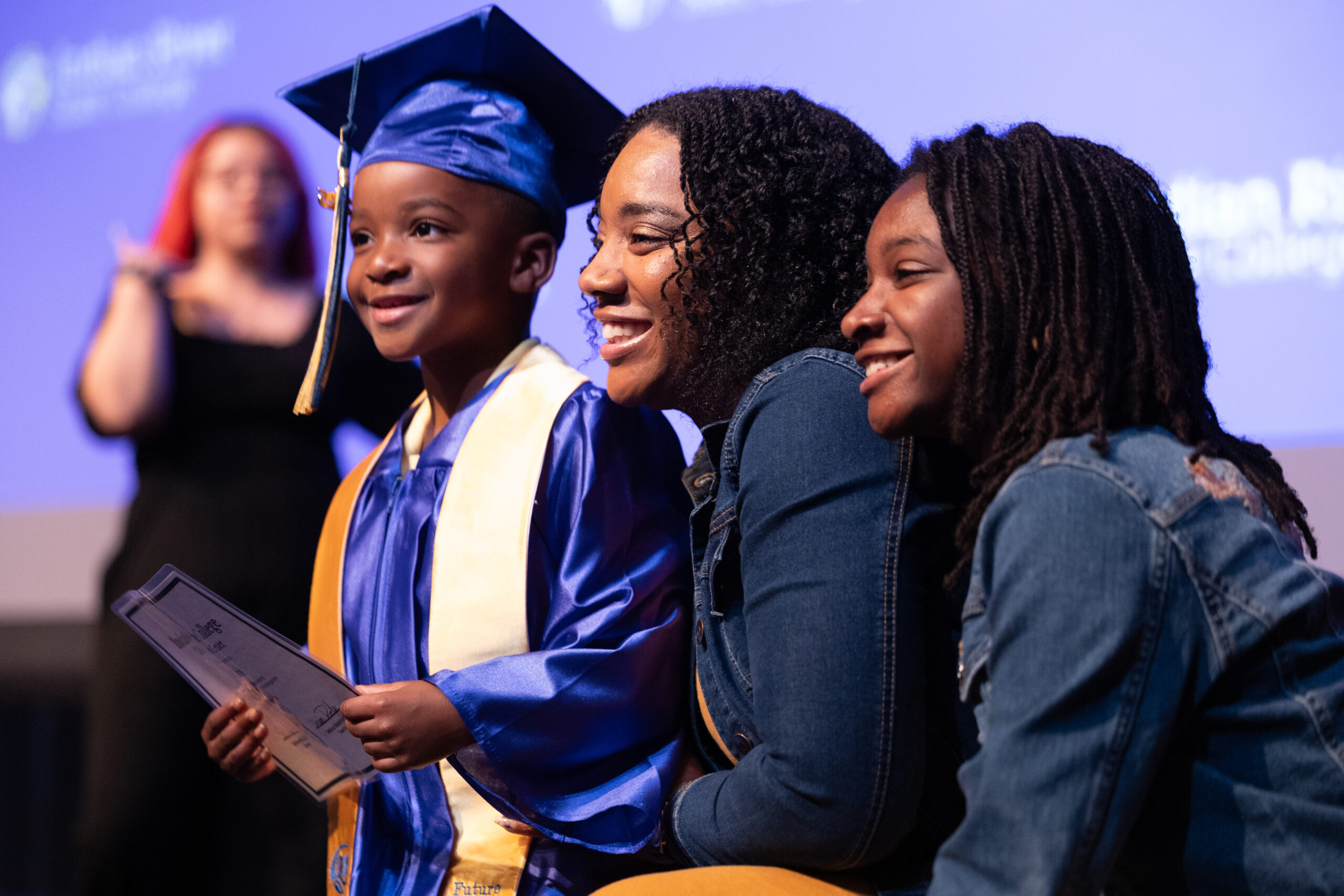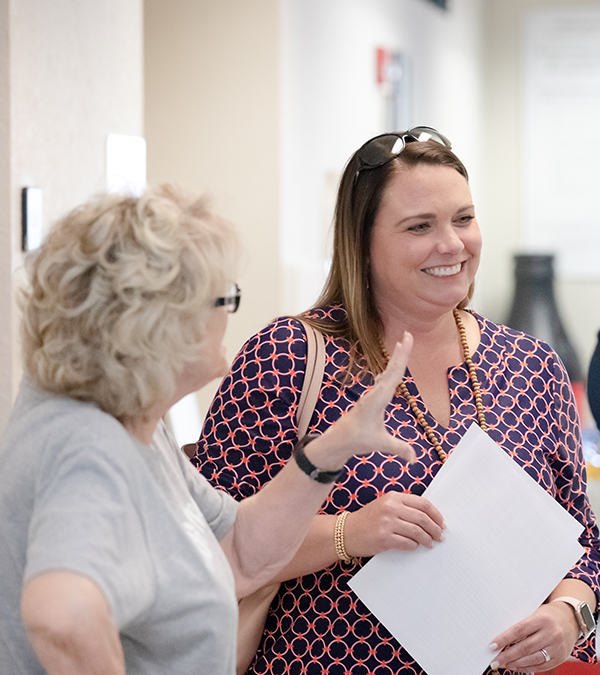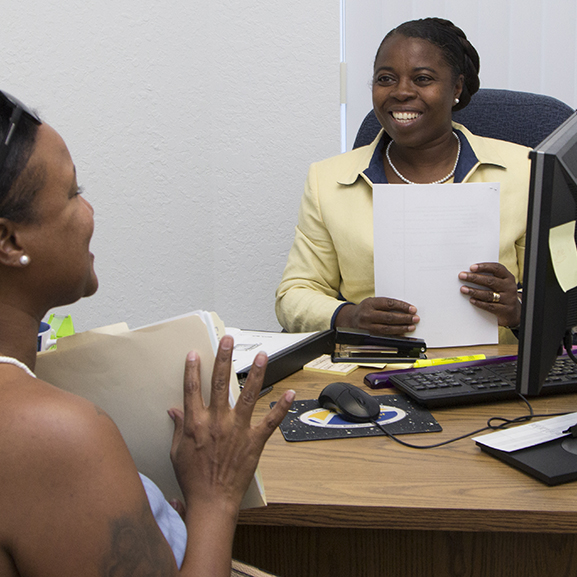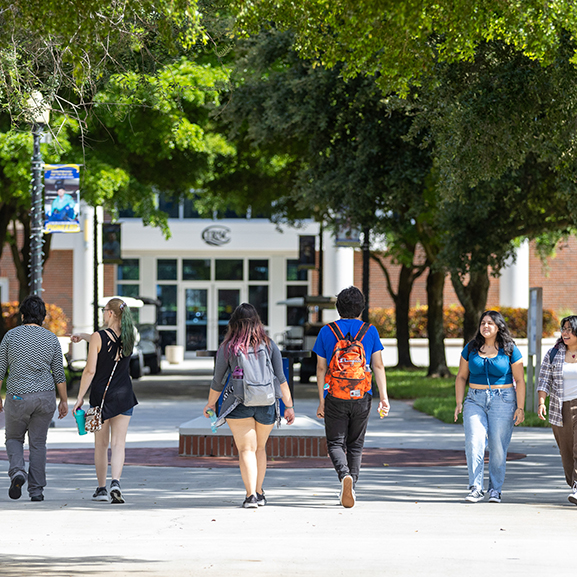
EARLY CHILDHOOD EDUCATION
Help the youngest among us grow and learn as an early childhood educator. Explore our programs and courses focused on children’s physical, emotional and social development.
THE RIVER CAN HELP YOU…
- Start or advance your career in early childhood education
- Prepare for further degrees and certifications in education

AVAILABLE PROGRAMS
- Associate in Science in Early Childhood Education
- Early Childhood Education
- Preschool Specialization
- Child Care Center Management Specialization
- Child Development and Early Intervention
Associate in Science in Early Childhood Education
Associate’s Degree
Indian River State College offers a number of different degrees and certificates leading to professional licensure in the state of Florida. Some professions require both a degree and the successful completion of additional criteria such as licensure exams, field placements or clinical hours. Student eligibility to apply to sit for the DCF introductory child care training is based on educational credentials or passing of competency examinations in the State of Florida as defined in s. 402.305(2), F.S. Requirements also include possession of a valid form of identification and a Social Security number. Visit the Florida Department of Children and Families (DCF) website to ensure your eligibility.
Prepare for a career working with small children in schools and care centers. Explore topics such as child development, running a child care center, health and safety and early educational principles. After you complete your associate’s degree, you can continue in a bachelor’s degree program at Indian River State College or another Florida public university.
Early Childhood Education
Career and Technical Education Programs
The early childhood education career training program incorporates courses on child development, laws and regulations, training for specific roles, and principles of caring for children from birth through eight years old.
Preschool Specialization
Technical Certificate
Our preschool specialization program will teach you how to provide the best care for preschool children in home-based or childcare centers. Courses in this program include growth and development, creating a safe and healthy learning environment, and legal and professional responsibilities.
Child Care Center Management Specialization
Technical Certificate
Disclaimer: Before you can enroll in this program, you must have completed the preschool specialization program.
Prepare to own or run your own child care center. Our child care center management specialization certificate will teach you how to manage a quality child care program effectively. This program is designed to benefit anyone who works or plans to work in child care, including those who are already working with small children and those entering the field from another career.
Child Development and Early Intervention
Technical Certificate
The child development and early intervention certificate is the first step towards a career in early childhood education and care. This program combines courses in early childhood education, childcare center management and childhood health.
Lorem ipsum dolor sit amet, consectetur adipiscing elit, sed do eiusmod tempor incididunt ut labore et dolore magna aliqua.
Lorem ipsum dolor sit amet, consectetur adipiscing elit, sed do eiusmod tempor incididunt ut labore et dolore magna aliqua.
Lorem ipsum dolor sit amet, consectetur adipiscing elit. Ut elit tellus, luctus nec ullamcorper mattis, pulvinar dapibus leo.
Lorem ipsum dolor sit amet, consectetur adipiscing elit. Ut elit tellus, luctus nec ullamcorper mattis, pulvinar dapibus leo.
Lorem ipsum dolor sit amet, consectetur adipiscing elit. Ut elit tellus, luctus nec ullamcorper mattis, pulvinar dapibus leo.

CAREER OPPORTUNITIES
At Indian River State College, our students who study Early Childhood Education can go into these careers:
WE’RE HERE TO HELP
For more information about our early childhood education program, contact us or request more information to talk to one of our admissions counselors.
Kim Runge
kchamble@irsc.edu

NEXT STEPS

APPLY TO THE RIVER
Discover what’s possible at Indian River State College. When you’re ready, our simple application process is here to help you take the next step.

PAYING FOR COLLEGE
We’re here to help you understand your options. From financial aid to scholarships and affordable tuition, The River is committed to making college accessible for everyone.

VISIT CAMPUS
Experience the energy of campus life for yourself. Schedule a tour to explore our facilities, meet students and staff, and discover what makes The River an incredible place to learn and grow.